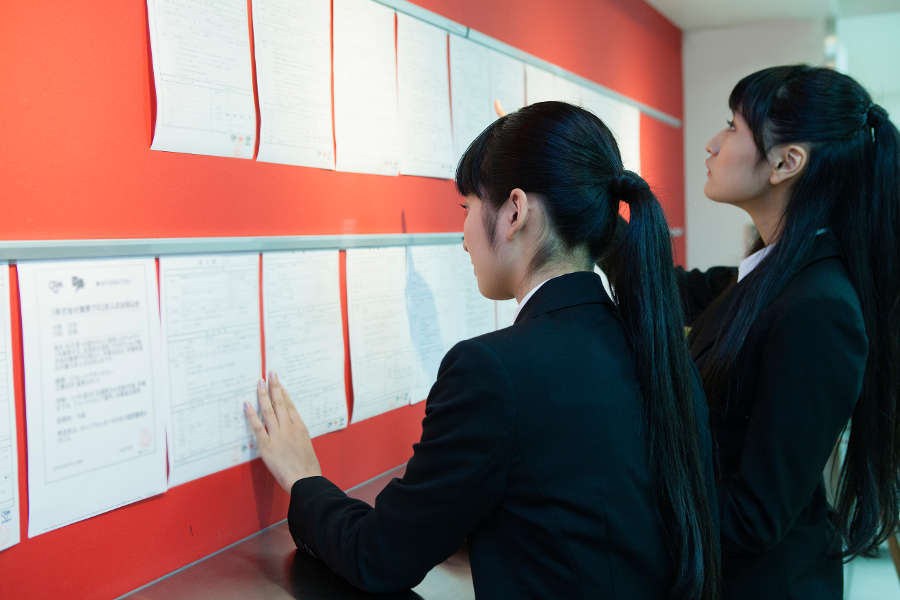I WANT
RELATED LINKS
I WANT
RELATED LINKS
RELATES LINKS
I WANT
RELATES LINKS
Services
Related Links
Use and Management of Cookies
We use cookies and other similar technologies on our website to enhance your browsing experience. For more information, please visit our Cookies Notice.
- Personal Banking
- Stories & Tips
- Tips for You
- Japanese corporate human resources management insight (3): X, Y, nZ theory
- Personal Banking
- ...
- Japanese corporate human resources management insight (3): X, Y, nZ theory
STORIES & TIPS
Japanese Corporate Style of Human Resources Management: Japanese Way of Managing Human Resources
Japanese corporate human resources management insight (3): X, Y, nZ theory
13-03-2020
This article will talk about the Japanese way of managing human resources, which is one of the 5 factors in Japanese Corporate Style of Human Resources Management apart from teamwork; Japanese recruiting system; X, Y, Z Employee Management Theory and Japanese Management.

Japanese Way of Managing Human Resources
As mentioned before that most of the Japanese companies still practice the policy of Shushin Koyo (終身雇用) or permanent employment. Therefore, the company will choose to hire employees with a potential growth rather than hire a talented individual that does not show a sign of potential improvement. The company will give importance to employees’ learning attitudes and emphasize them growing together with the organization more than individual talents.
The Japanese way of managing human resources, mostly, it is long-term management for employees. The company will train employees to become generalists who are ever ready to learn new things in any department and are ready to work in any position. In some companies, they recruit employees to take up a position of specialists for some specific fields of job. Specialists will only focus on the tasks that they are specialized in. Nevertheless, common employees in Japanese companies do not hold a position of specialist, but they are expected to be a generalist that can work flexibly in any department of the company.

The growth management of employees will start from the very first day they start their work. The company will use at least 1 month to train and teach important skills that are mandatory for workers to the employees such as Excel, Powerpoint, and other relevant programs. Employees will also have to know about the flow and process of working. Sometimes, the company may have to spend one whole year to train their employees before assigning them actually work.
After that, there will be an evaluation every year to analyze the strengths and weaknesses of the employees and the team leader will discuss with the manager about the skill that each employee needs to further improve themselves. The skills that will be trained are both hard skills and soft skills. The majority of the employees who have been working in the same department for 1-3 years will be rotated to other departments to learn different tasks. Within the first 1-3 years, employees are usually moved to other departments and after a while, they will be promoted to a higher position. The conservative Japanese companies will promote employees after 8-10 years of working. However, many Japanese companies have now adopted Z Theory by Ouchi. Thus, only 3-5 years, employees will be promoted. They do not have to wait for a decade like in the past.

Despite having individual performance evaluations, Japanese organizations still tremendously put importance on teamwork. The company still encourages group work, giving high value on teamwork, and places negative attitudes on one-man show work. There is even an idiom saying, “The nails that stick out get hammered down (出る杭は打たれる)”. So, if anybody tries to work alone, they might be strongly opposed by their team members.
Because teamwork is highly valued, Japanese society, thus, gives importance to name cards, name cards exchange, and name cardholders. Exchanging name cards on the first meeting is the sacred ritual that has to be done before any business meeting. If one does not practice the correct way of exchanging name cards, the business relationship might be ruined badly. This is because the name card is the pride of the company, if there is a mistake during the holy ritual, the doom may lie upon the 2 organizations.

Another issue that represents the Japanese working value is that employees do not really have the rank. Most of the companies use the department that each employee works under as their rank. For example, Miss/Mister Yamada from the PR department will introduce themselves as “I am Yamada, PR position” (Japanese people will refer to themselves by surnames to people they are not close to and on business occasions). Japanese companies will start to give their employees a rank when the employees hold the responsibility of the team leaders or else, they remain as staff members. On the other hand, employees will have many more ranks to call themselves, like Executive, Staff, Member, Officer, etcetera, in Thailand.

Besides, emphasis on teamwork does not allow Japanese employees to maintain a work-life balance. Because, apart from the result, the company evaluates contribution to work as well. The end result is the team result. Everybody in the team has to contribute equally and if they want to stand out from others, they have to produce great results as well as put in dedication. Dedication will serve as a value-added factor for employees to strive further in their work. Dedication could come in the form of long overtime working, drinking sessions with team members or managers, or playing golf with team members or managers. Basically, personal time will have to be used to spend as working time to show “dedication” to the company.
Written by Weerayuth Podsatiangool, HROD Consultant, Intercultural Communication Expert, Japanese Language Instructor of Old Japan Students Association, Interpreter, and Lecturer.
